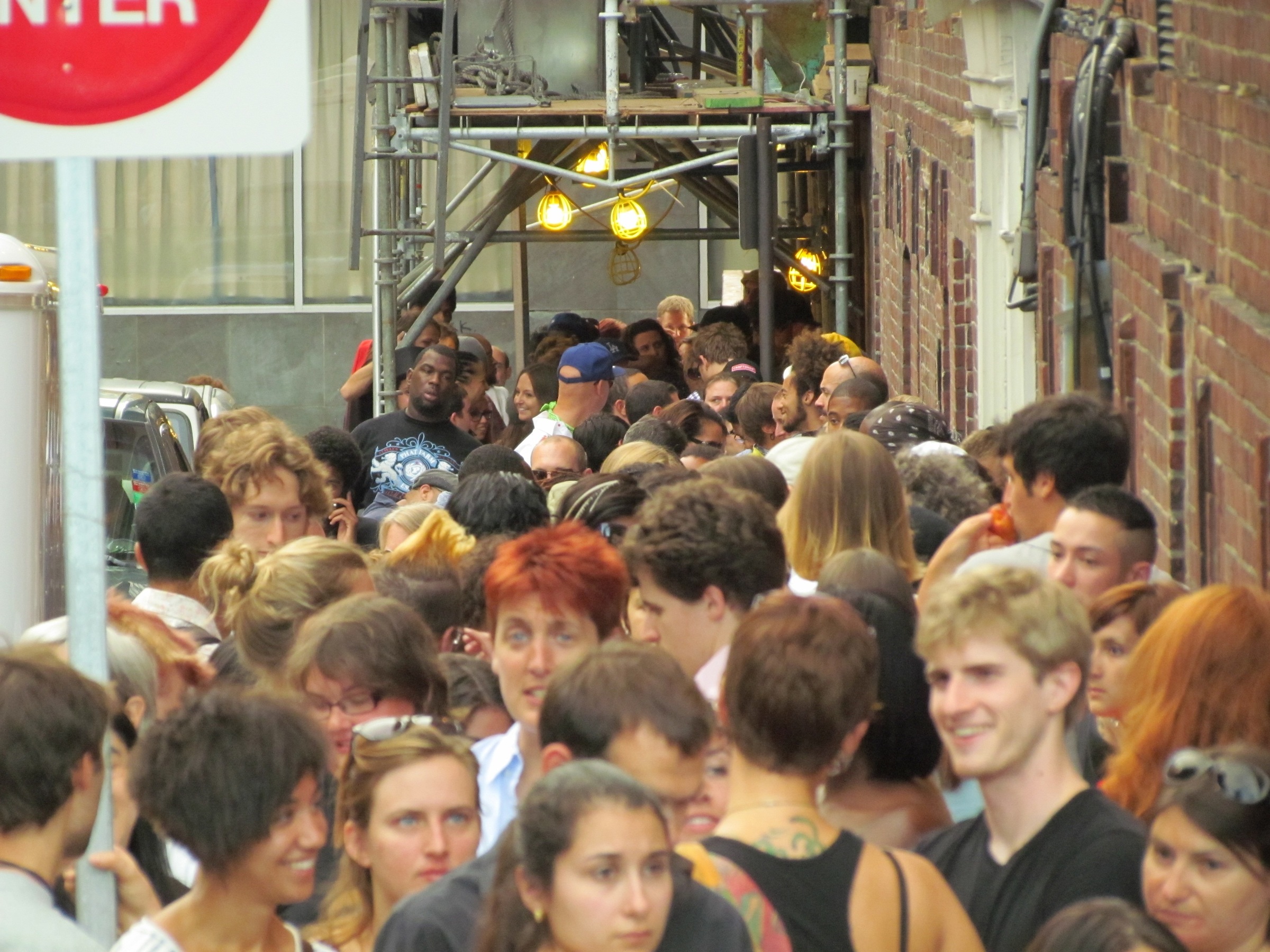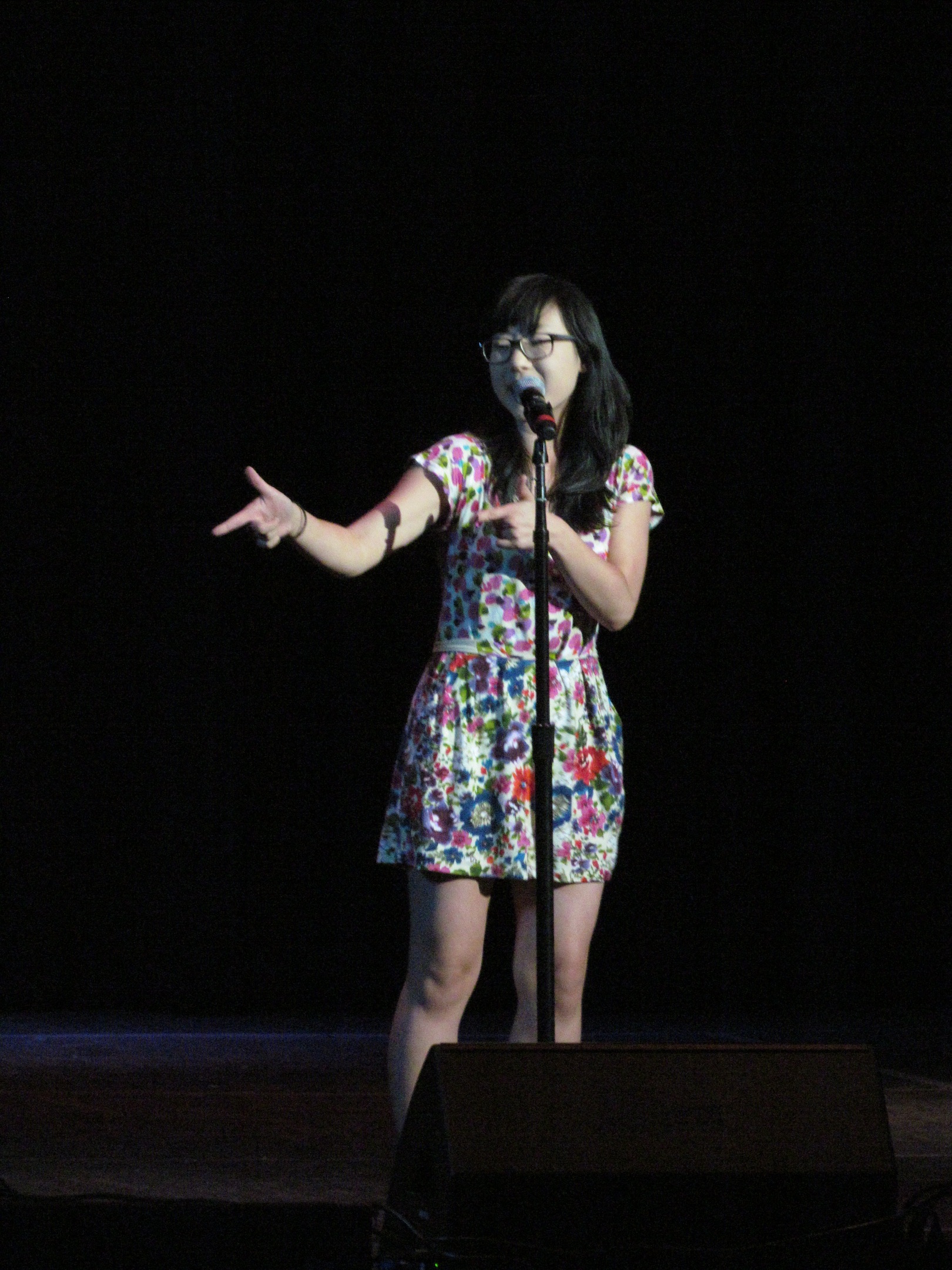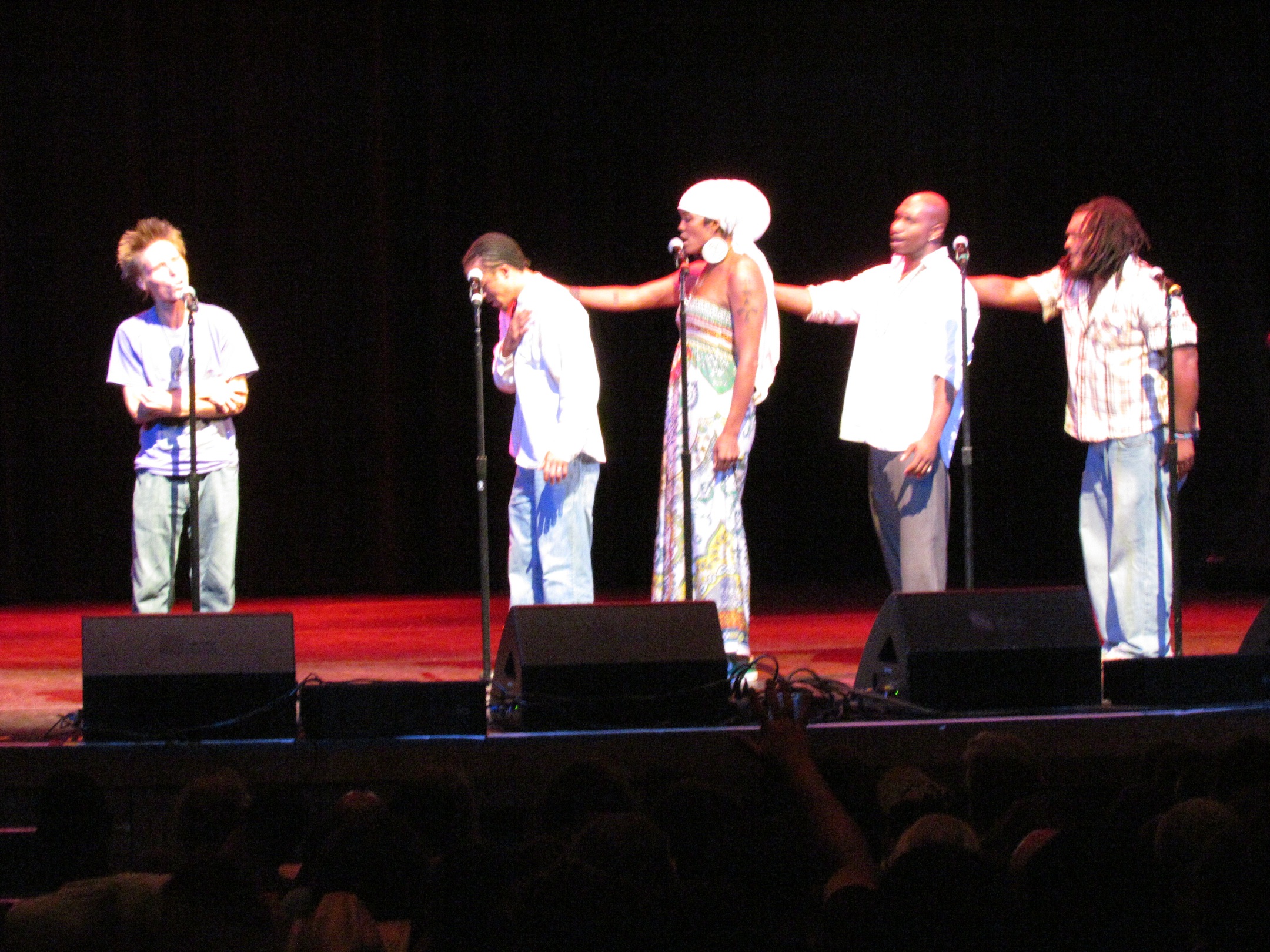On the night of August 13th, just outside the Berklee Performance Center in Boston, Massachusetts Avenue was flooded with eager ears and a few newly minted celebrities.
"Aren't you guys poets?" an excited voiced asked the group waiting in line behind me to get into the venue. "I've never been to a slam before, but I saw you compete earlier this week and my mind was blown! Can I get a picture with you?"
If ever there were a time and place where poets could be elevated to superstardom, the National Poetry Slam--a week of poetry workshops, showcases, and competitions devoted to performance poetry--would be that space, giving usually anonymous faces the kind of exposure seemingly reserved only for society's A-list. And the attention is well deserved, for while very few people have the courage to offer even their closest friends free passage through their personal experiences, these poets cut themselves open in front of hundreds and become like living art exhibits.
Oh, and since it's a competition? Yeah, they're being judged, too.
If the photo shoot taking place behind me (or the insane line of people coiled around the building) wasn't enough to convince anyone that these poets were indeed vaulted from obscurity to at least some sort of quasi-fame on the backs of their words, the scene on the inside of the Berklee Center would have converted even the most obstinate nonbeliever. The auditorium was stuffed to the gills, filled with NPS veterans and newcomers alike all waiting to witness the finale of the week: the final slam including Slam Nuba (Denver, CO), Nuyorican Poets Café (New York, NY), Providence Poetry Slam (Providence, RI), and Writing Wrongs (Columbus, OH).
After witnessing firsthand the amazing energy exchanged between the poets and audience during the competition that night, it is strange to think that "slam poetry" as a movement (genre? form?) still struggles to define itself as a means for legitimate poetic expression in some circles. Often considered gimmicky, unorganized and uncreative, many believe that slam poetry lacks the intellectual depth demonstrated by the seasoned writers lauded by academia. (A commenter on a previous post of mine considered slamming "absurd" and likened it to "free form hip-hop battling." Although there is truth in the comparison, it hardly works to cheapen the complexity involved in both).
Such writers do deserve praise for their work, but how often do poets laureate fill auditoriums with people itching to hear their work these days? Better yet, how often do they attract newcomers who have no previous experience with their poetry or even poetry in general? Or how about this: Do most people know who the current US Poet Laureate even is?
Certainly no offense is meant to Philip Levine (current US Poet Laureate)--his writing is exceptional--but when the American government deems it necessary to appoint someone to a position based on the character and standard of their work, you would expect the influence of their words to reach a bit further than some absurd hip-hop simpletons battling it out on stage. It must be a poetic twist of irony, then, that some of the names that graced the bars and lounges around Boston and Cambridge lured an international audience, while many who claim to be poetry enthusiasts probably don't know Levine exists.
In the prologue of The Spoken Word Revolution, an anthology of poems written (is "written" a malapropism here?) by "spoken word" poets, Marc Smith--the "Father of Slam Poetry"--is quoted as saying, "when I started, nobody wanted to go to poetry readings. Slam gave it life...a community where you didn't have to be a special something...I think when poetry went from the oral tradition to the page, someone should've asked, is that really poetry?"
Poetry, like all things, is subject to change, to the ebb and flow of pop culture, current events, and demand. So can slam poetry, a culture that is clearly thriving and growing, really be considered anything less than legitimate? "I think slam gets poetry back to its roots," Smith continues to explain, "[it] breathes life into the words."
Which is perhaps only half the story. The other half is how poetry is received, how it touches those receptive to its nuances and the emotion it imparts. Otherwise poetry ceases to fulfill its primary function, which, according to William Wordsworth, is to convey a "spontaneous overflow of powerful feelings." In this way Slam seems to have taken the next step, broadening the scope of poetry's influence so that it may reach a wider audience, echoing in the ears of many instead of the eyes of few. And who could argue against it's appeal, when so many travel from so far to witness the Super Bowl of Slam every year? Or when such an event prompts random "poetry ciphers" in the streets like the one shown below? Spontaneous expressions of poetry in the streets shared by poets and non-poets standing huddled shoulder to shoulder--Wordsworth would approve.
So slam poetry lives and grows on, poetically defiant in its refusal to exist within the margins and consistently reminding us that though it might be absurd to judge poems on a scale from 1 to 10, it is equally absurd to pretend to be a judge of what is (or is not) true poetry.


